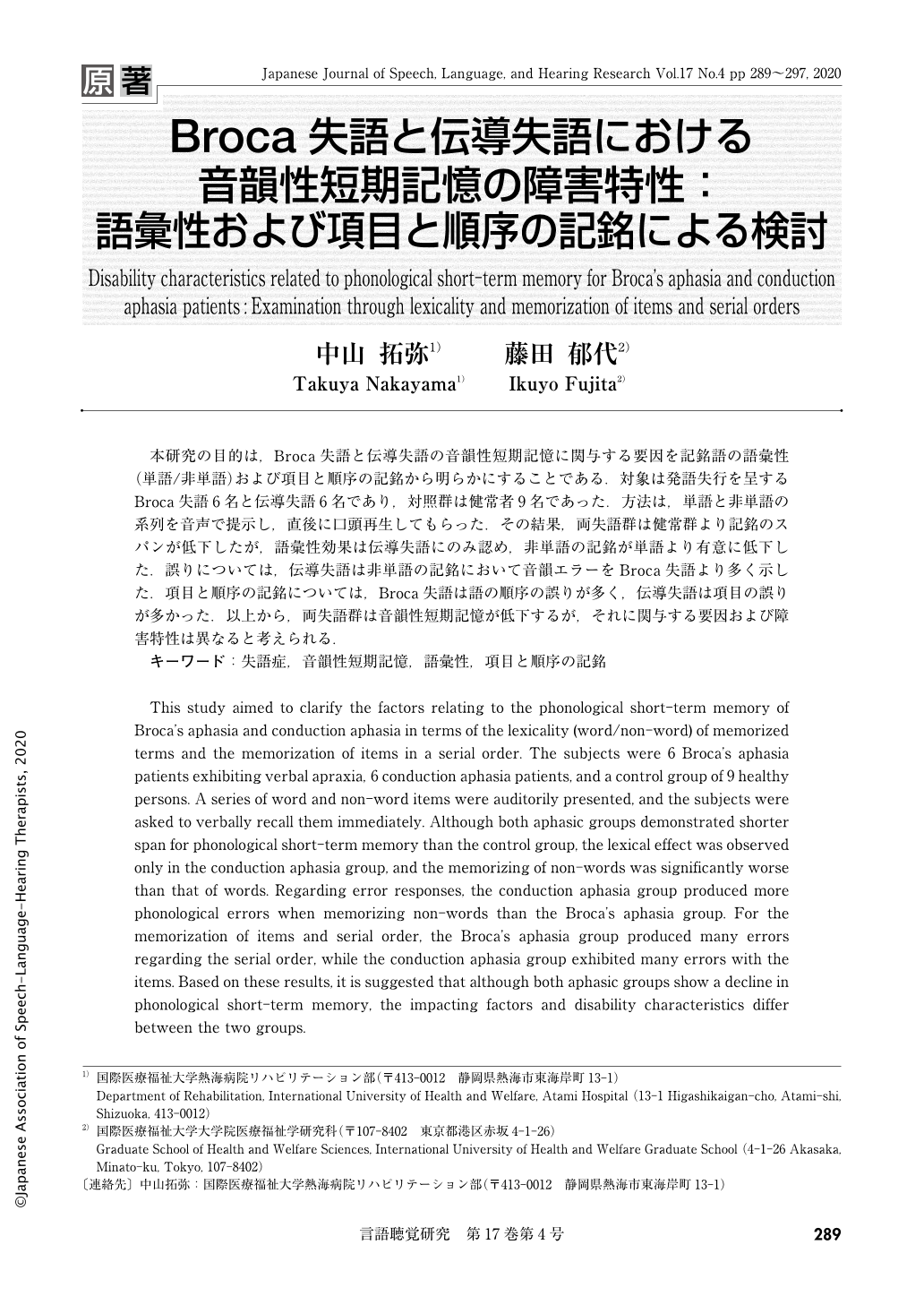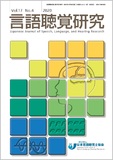Japanese
English
- 有料閲覧
- Abstract 文献概要
- 1ページ目 Look Inside
- 参考文献 Reference
本研究の目的は,Broca失語と伝導失語の音韻性短期記憶に関与する要因を記銘語の語彙性(単語/非単語)および項目と順序の記銘から明らかにすることである.対象は発語失行を呈するBroca失語6名と伝導失語6名であり,対照群は健常者9名であった.方法は,単語と非単語の系列を音声で提示し,直後に口頭再生してもらった.その結果,両失語群は健常群より記銘のスパンが低下したが,語彙性効果は伝導失語にのみ認め,非単語の記銘が単語より有意に低下した.誤りについては,伝導失語は非単語の記銘において音韻エラーをBroca失語より多く示した.項目と順序の記銘については,Broca失語は語の順序の誤りが多く,伝導失語は項目の誤りが多かった.以上から,両失語群は音韻性短期記憶が低下するが,それに関与する要因および障害特性は異なると考えられる.
This study aimed to clarify the factors relating to the phonological short-term memory of Broca's aphasia and conduction aphasia in terms of the lexicality (word/non-word) of memorized terms and the memorization of items in a serial order. The subjects were 6 Broca's aphasia patients exhibiting verbal apraxia, 6 conduction aphasia patients, and a control group of 9 healthy persons. A series of word and non-word items were auditorily presented, and the subjects were asked to verbally recall them immediately. Although both aphasic groups demonstrated shorter span for phonological short-term memory than the control group, the lexical effect was observed only in the conduction aphasia group, and the memorizing of non-words was significantly worse than that of words. Regarding error responses, the conduction aphasia group produced more phonological errors when memorizing non-words than the Broca's aphasia group. For the memorization of items and serial order, the Broca's aphasia group produced many errors regarding the serial order, while the conduction aphasia group exhibited many errors with the items. Based on these results, it is suggested that although both aphasic groups show a decline in phonological short-term memory, the impacting factors and disability characteristics differ between the two groups.

Copyright © 2020, Japanese Association of Speech-Language-Hearing Therapists. All rights reserved.


